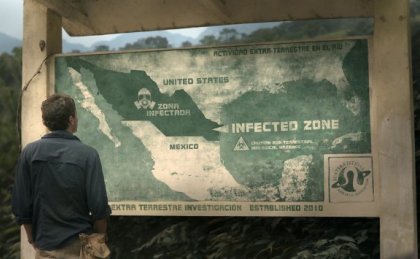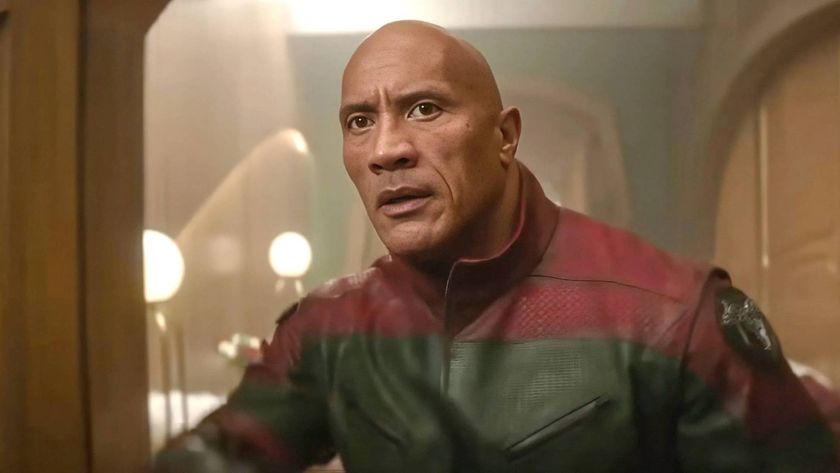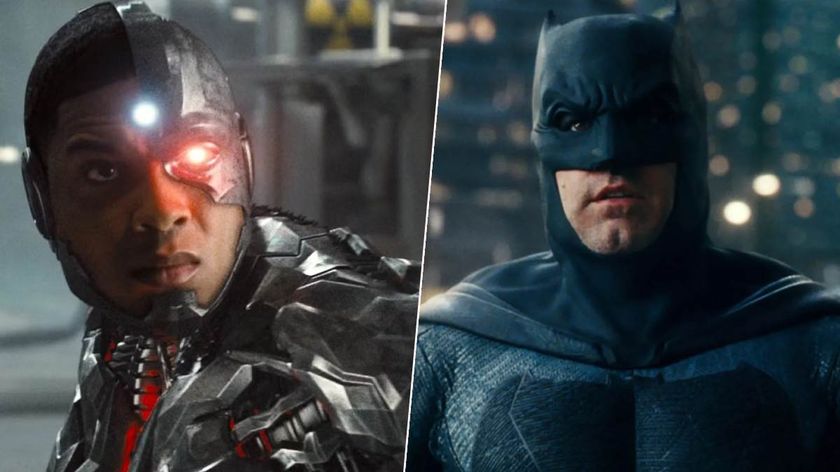Why you can trust 12DOVE
They’ll never make them like this again,” said George Lucas to Martin Scorsese as they strolled through the gargantuan Gangs Of New York set.
The implication was that any film of such scale and sweep would henceforth play out on the CG-scapes favoured by the Star Wars overlord. While this hasn’t (yet) proved true, Hollywood’s canniest chequed shirt might not have been entirely wrong either.
Written, directed, designed, DP’ed and SFX’ed by one man – for peanuts – and improvised on the fly with a cast of two across Central America, Monsters is the world’s first home-made sci-fi blockbuster, or at least the first that can stand toe to toe with the big boys without feeling embarrassed about its trainers.
British SFX whiz Gareth Edwards served a frustrating apprenticeship in TV docs before unleashing his feature debut’s squid-like space beasties.
Though he spikes his sun-burnished landscapes with ruined buildings and vehicles, this isn’t an imaginary world reduced to the capacity of a hard-drive, but the real one embellished by gorgeous CG anomalies.
It’s not fantasy, but an impossible documentary from a possible future. One thing’s for sure, as Edwards racks focus on incinerated alien limbs and children’s corpses, that galaxy far, far away has never seemed further.
Byway to the danger zone
Following Godard’s maxim that “films should have a beginning, a middle and an end, but not necessarily in that order”, the film begins with a brilliant flashfire-strafed action scene.
The upshot is an early reveal of one the squids (the result of a NA SA space probe that crashed six years previously) in all its marauding glory.
It’s a smart move because the pace soon slows (and stays) at a contemplative meander as we meet American photojournalist Andrew (Scoot McNairy) and his boss’ daughter, Samantha (Whitney Able), who Andrew must escort home from Mexico avoiding the ‘Infected Zone’, a walled-off containment area to which the aliens (somewhat messily) migrate every year.
Needless to say, things don’t go according to plan, and pretty soon the pair are Apocalypse Now-ing their way up the river into the unknown. There’s even time for a little Wagner.
Charismatic but uningratiating, Andrew sees life through his own cynical viewfinder, while Sam glides along with the untouchable serenity of the wealthy.
Moving with shell-shocked indifference through shifting levels of strangeness – foreign towns, eerie jungles, a decimated evacuation zone – they begin to thaw towards each other, the two actors (who are now married in real life) tenderly sketching in the beats as romantic possibilities flare then falter.
“You don’t have to do it perfect,” she tells him, tenderly, as he bandages her hand, a sweet summary of the film’s woozy, patchwork realism.
Edwards takes a similarly low-key approach to his direction, using half-seen CG warning signs, ominous details (bloody handprints smeared across an abandoned barge, howler monkeys screaming in the trees) and atmospheric but ready-made locations (the hurricane-ravaged Galveston, USA) to suggest a many-textured world drifting inexorably to hell.
A new hope
Those expecting to see an equatorial Cloverfield won’t be disappointed, but they may be surprised: Monsters plays out more like The Road: A Romance than a traditional creature feature.
To the inhabitants of the Infected Zone, the aliens are old news, a nebulous concern in an area used to immigration and outbreaks of territorial violence.
But it’s also because Edwards and his performers seek a cinematic experience beyond mere pointing and staring, where a kiss on the hand has as much impact on the audience as the sudden appearance of an outraged space cephalopod.
True, there’s something occasionally remote about the film’s kaleidoscopic delights. But you’ll leave with no doubt of Edwards’ capacity for empathy. He proves his stones as a showman too.
This may be a story about slow-blooming love and otherness, both ethnic and extra-terrestrial, but it also promises monsters. And, when they eventually re-emerge in a thrilling, fog-shrouded ambush, flinging trucks into the trees like the natural heirs to ILM ’s groundbreaking T-Rex, they’re nothing short of awesome. Not too shabby for an ambitious computer geek who saw Jurassic Park as a teen and thought, “Yep, I could do that.”
While it’s only fitting that Edwards should pay homage to heavyweights such as Spielberg and Coppola, they may not see the joke. With his innovative, one-stopshop method of production – and an unforgettable film to boot – he may well prove their equal or, indeed, their usurper.
Not only should Monsters catapult him unstoppably into the mainstream, it might just change moviemaking forever. Maybe Lucas was right after all.
Matt Glasby is a freelance film and TV journalist. You can find his work on Total Film - in print and online - as well as at publications like the Radio Times, Channel 4, DVD REview, Flicks, GQ, Hotdog, Little White Lies, and SFX, among others. He is also the author of several novels, including The Book of Horror: The Anatomy of Fear in Film and Britpop Cinema: From Trainspotting To This Is England.















